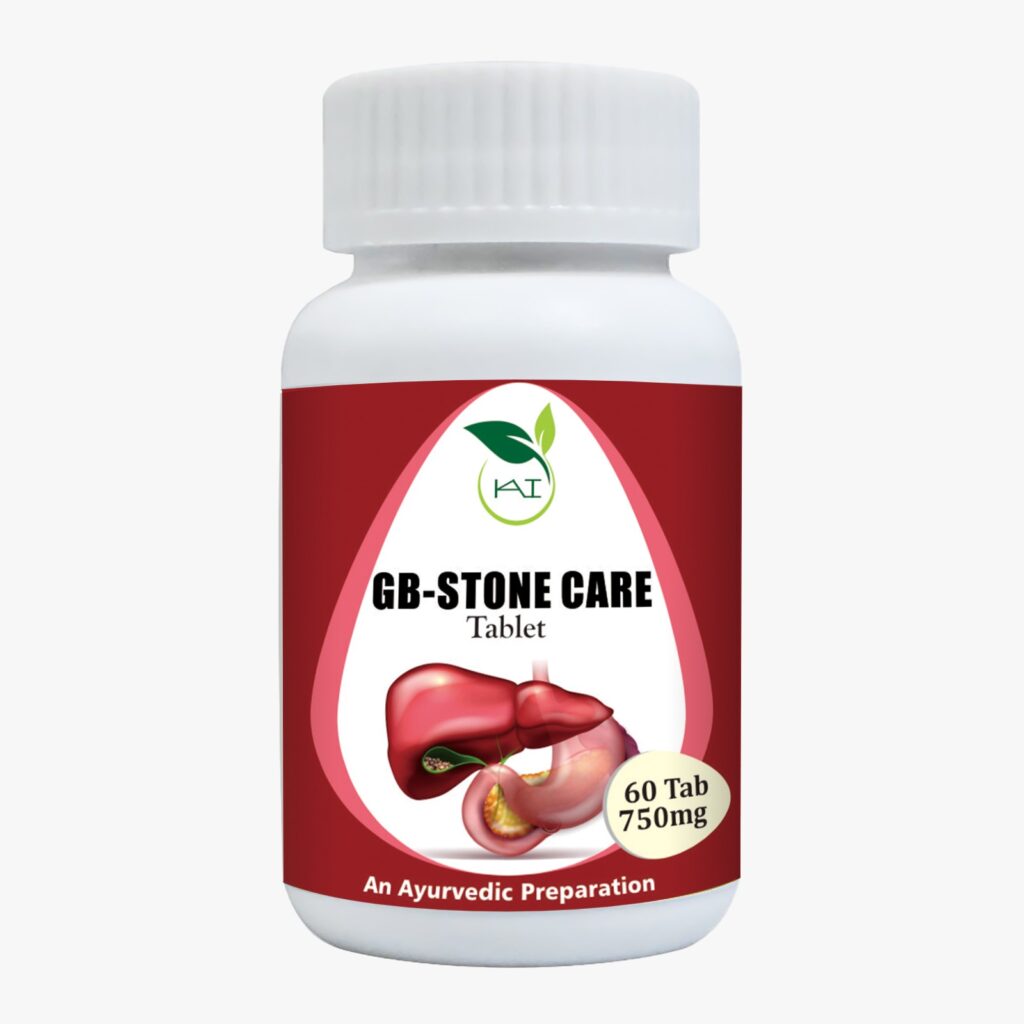GB STONE CARE TABLETS
PROPERTIES & BENEFITS OF GB STONE CARE TABLETS:
Kai Herbals GB-Stone Care Tablets are specifically formulated to address a range of health issues, primarily focusing on gall bladder health. These tablets play a pivotal role in the dissolution and fragmentation of gall bladder stones, aiding in their elimination from the body. In addition to their effectiveness in dealing with gallstones, Kai Herbals GB-Stone Care Tablets offer comprehensive benefits for urinary health. They have been designed to assist in the treatment of urinary infections, providing relief from discomfort associated with painful urination.
Moreover, these tablets contribute to intestinal detoxification, promoting a healthier digestive system. The formulation is carefully crafted to relieve abdominal pain, offering a holistic approach to gastrointestinal well-being. Individuals experiencing constipation can also benefit from Kai Herbals GB-Stone Care Tablets , as they are designed to alleviate this common digestive issue. Through a combination of therapeutic actions, these tablets emerge as a versatile solution for various concerns related to gall bladder health, urinary issues, and digestive discomfort.
INGREDIENTS & IT’S BENEFITS :
| Sr. No. | Name of Ingredient | Latin / English Name | Qty in mg |
|---|---|---|---|
| 1 | Khursani Ajwain | Hyoscyamus Niger | 100 |
| 2 | Kantakari | Solanum virginianum | 50 |
| 3 | Gokhru | Tribulus terrestris | 50 |
| 4 | Chirata | Swertia chirata | 75 |
| 5 | Manjistha | Rubia cordifolia | 50 |
| 6 | Amalaki | Phyllanthus emblica | 75 |
| 7 | Kalmegh | Andrographis paniculata | 50 |
| 8 | Apamargkshar | Achyranthes aspera | 25 |
| 9 | Kutki | Picrorhiza kurroa | 25 |
| 10 | Aloevera | Aloe barbadensis | 100 |
| 11 | Pashanbhed | Bergenia ligulata | 50 |
| 12 | Tankan bhasam | Ayurvedic drug | 25 |
| 13 | Milk thistle | Silybum marianum | 50 |
| 14 | Sariva | Hemidesmus indicus | 25 |
| 15 | Excipient | — | QS |
- Known for its digestive properties.
- May help alleviate symptoms of indigestion and bloating.
2. Kantakari (Solanum xanthocarpum):
- Traditionally used in Ayurveda for respiratory issues.
- Believed to have bronchodilator effects, aiding in respiratory health.
3. Gokhru (Tribulus terrestris):
- Often used to support urinary and reproductive health.
4. Chirata (Swertia chirata):
- Recognized for its bitter taste and digestive properties.
- Thought to support liver function.
5. Manjistha (Rubia cordifolia):
- Known for its blood-purifying properties.
- May support skin health and address skin disorders.
6.Amalaki (Emblica officinalis):
- Rich in Vitamin C and antioxidants.
- Supports immune function and aids in digestion.
7.Kalmegh (Andrographis paniculata):
- Traditionally used for its immune-boosting properties.
- May have anti-inflammatory effects.
8.Apamargkshar (Achyranthes aspera):
- Used in traditional medicine for digestive issues.
- May have diuretic properties.
9.Kutki (Picrorhiza kurroa):
- Known for its liver-protective properties.
- May support liver detoxification.
10.Aloe Vera:
- Well-known for its soothing and healing properties for the skin.
- May support digestive health.
11. Pashanbhed (Bergenia ligulata):
- Traditionally used for kidney and urinary issues.
12.Tankan Bhasam (Borax):
- Used in Ayurvedic medicine for digestive disorders.
- May have antacid properties.
13.Milk Thistle (Silybum marianum):
- Known for its liver-protective effects.
- May support liver detoxification and regeneration.
14. Sariva (Hemidesmus indicus):
- Traditionally used for blood purification.
- May have anti-inflammatory properties.
15. Excipient:
- Typically a non-active substance added to aid in the formulation or manufacturing process.
DOSAGE:
1 to 2 tablets twice a day or as directed by healthcare professional.
